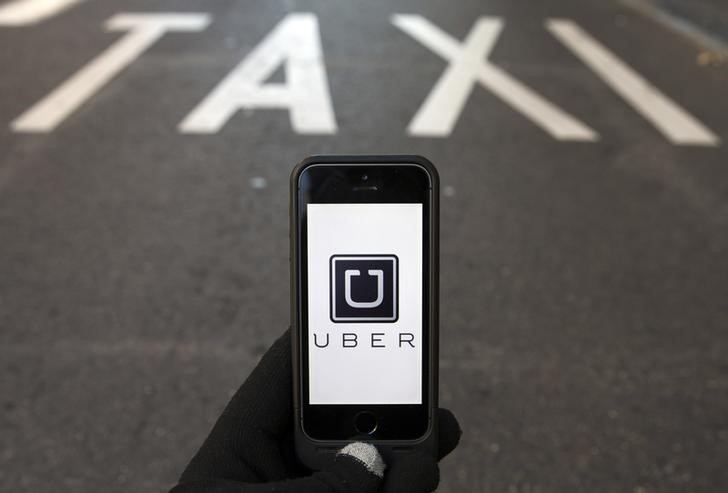By Chine Labbé
PARIS (Reuters) - The Paris appeals court has delayed a decision on whether to ban Uber's unlicensed UberPOP service while it awaits the result of the U.S. company's constitutional challenge of a new French law on taxis and chauffeured cars.
Legal challenges in several European markets have become an increasing problem for Uber as it expands outside the United States to build on a $40 billion (27 billion pounds) valuation that makes it the world's most valuable venture-backed start-up.
A loss in France would add to a recent court decisions against UberPOP in Germany and the Netherlands, as well as an outright ban in Spain.
A French decision could come as early as June or by the end September, depending on whether the issues go all the way to France's Constitutional Council or are handled by a lower authority, according to court documents reviewed by Reuters.
While courts examine the constitutional issues in France, Uber will continue to operate UberPOP, which allows individuals to use their private cars to offer rides to others at cheaper rates than traditional taxis.
The case was brought by competing car services LeCab, GreenTomatoCars, Transdev Shuttle and a taxi union.
The decision will not affect Uber's more traditional service, which allows licensed professional drivers to pick up customers who hail them using their smartphones.
Created by two Silicon Valley entrepreneurs frustrated by difficulties encountered when trying to hail a cab in Paris, Uber's popular app was launched in 2010 and is now available in nearly 270 cities.
COMPLAINTS
The company, however, has attracted widespread criticism of its business style of moving first and asking permission later. It has faced complaints around the world over how it pays drivers, charges passengers and ensures their safety.
Local taxi companies, which often have to pay steep licence fees, argue that Uber is competing unfairly by not respecting local regulations.
Uber's usual defence is that it does not fall under rules governing taxi operators because its smartphone app merely acts as an exchange connecting drivers with clients.
"UberPOP will continue," Pierre-Dimitri Gore-Coty, who heads Uber in western Europe, told Reuters. "We are not cowboys, but we intend to revolutionise urban transport."
In France, the government sought to calm conflicts between taxis and Uber by reworking the rules on how traditional taxis compete with chauffeured cars.
The so-called Thevenoud law required chauffeured cars to return to a base between fares, restricted their use of localisation software to find clients in the street and banned unlicensed service, among other measures.
The law, passed in October, is now being contested by Uber at the European Commision and in France.
Uber's Paris office was raided two weeks ago by French police who confiscated 1,200 cell phones, some computers and documents. A French judiciary source said the raid was part of an investigation begun in November into whether the company was breaking the Thevenoud law and illegally retaining customers' personal data.
French police have also arrested about 100 drivers using UberPOP, who could face fines of up to 15,000 euros and have their licenses suspended for up to five years, and given tickets to many more, said a judicial source.

"Earning money by transporting people without being a licensed chauffeur or taxi driver remains illegal and can be heavily punished," said Maxime de Guillenchidt, a lawyer for LeCab. "The arrests of such unlicensed drivers will continue."